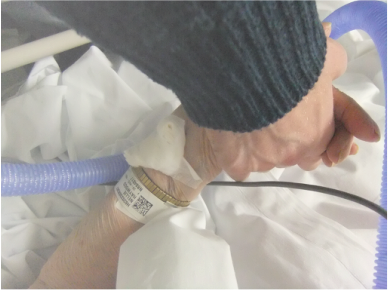|
9/20/2012 Caregiver Wellness Website Redesigned In seeking to bring you the most current, relevant and useful information and resources amidst a constant stream, I have redesigned the website, adding categories as pages in a hierarchy to make it easier (hopefully!) to navigate to what particularly interests you. You will have to be the judge of whether my efforts have succeeded! Please feel free to leave your comments and feedback, as those are always appreciated. I will continue to tweak the pages. There is some crossover between subjects, and I've tried to avoid duplication by providing "jumps" (an internal link to another page on this site) if there are two places the information could be categorized. As always, it is my hope that the content of this site provides you with comfort, help, ideas, resources and inspiration. Blessings on your journey as caregiver. You are giving an amazing gift of love! 9/9/2012 Lessons from Alzheimer's, Part 1I found Alzheimer’s Disease to be a very powerful teacher over the course of my Mom’s 17-year journey through it. I want to share with you a couple of the most enlightening, soul-changing lessons it taught me:
1.) Acceptance -- Alzheimer’s is a “kick in the gut” kind of disease. The diagnosis knocks the wind out of you like falling off a galloping horse and hitting the ground at great speed. It hurts like hell and leaves you bruised and aching. You have a visceral, deep, grief reaction, as if you’d been told someone you love died. And, in a sense, Alzheimer’s can be thought of as a very slow, mind-stealing, personality-altering thief of life. But it doesn’t have to be! When my mother was diagnosed, first I got very angry and railed at the Universe that such a sweet, wonderful person, who gave selflessly to others all her life, could possibly be punished with this affliction. Once I moved beyond that, I wanted to stick my head firmly in the sands of denial and keep it there for a decade or two. But I couldn’t. I had to help her through it. I had to accept what was -- reality. But I’m not talking about curling-up-in-a-small-ball-of misery-and-waving-the-white-flag-of-surrender kind of acceptance. No, indeed! What I’m advocating is a sort of life-affirming, defiant acceptance. The kind where you look fear (and Alzheimer’s) in the face and say, “I may not be able to stop you from taking precious pieces of my loved one, but you can’t take away our love, devotion, dignity and simple human pleasures of living. You can’t define who my mother is or who I am. You can’t take away the joy of being alive!” My defiant acceptance approach served us very well over the years. It gave me perspective on things and helped me navigate the very tough choices that had to be made on a day by day, sometimes moment by moment basis. Defiant acceptance allowed me to be not only the best advocate for my mother, but also the best daughter I could be. Both are vital. So, if you face a diagnosis of AD (I’m calling it AD from here on because it’s shorter to type), you can take the defiant acceptance approach, for yourself or your loved one. Cultivate the positive treasures of life, and wring every single drop of love and joy and satisfaction from each moment. It may not change the outcome, but it will make the journey rich, abundant, & beautiful beyond measure. Life worth living… 2.) Patience -- I don’t know about you, but for me Patience with a capital “P” has been a life-long lesson. Apparently, I’m a slow learner, so I’ve been given zillions of opportunities with this one! But Patience, like Acceptance, has many faces or facets. I found I was absolutely no good at sitting back in resigned silence, waiting for things to change or un-change back to what they were. I’m not that kind of person. I have way too much energy, passion and purpose for changing the world to be patient with injustice, with evil, with willful destruction of our planet, with man’s inhumanity to man, with greed, cruelty or unnecessary suffering -- all of which are crippling our world. So, in some circumstances at least, impatience is called for as a driving motivator for change, a call to action. Maybe I’m just trying to put my flaw in the best possible light :) But, be that as it may, I have lived my life learning patience over and over. Alzheimer’s Disease is a wonderful teacher of patience. Oh boy, is it ever! I had to learn to hear unlimited repetition -- of stories, of sayings, of poems, of songs, of questions, of observations -- I called this the endless-loop feature of AD. My Mom would just get “stuck” in an endless loop of repeating the same thing. For example, we were stranded in an airport after missing a connection (due to weather) and had a 5 hour wait for the flight home from a wedding. This was the last time I traveled with her alone by air. It had already been a very stressful trip. One in which my mother, as is common with AD, got very confused being in unfamiliar surroundings, out of her routine. I was sad that even while visiting the house where she was born and grew up, where her sister was still living, she remembered it not at all. So much for long term memory, I thought. So, as we were sitting in the airport (a place full of noise and commotion and distraction), I wasn’t able to leave her side, even for a minute--to get food, or tend to a call of nature. We were joined at the hip for five very long torturous hours. She must have asked the question, “Where are we going?” at least a thousand times. I’m not exaggerating. I started out telling her, in detail that we were going home from a wedding, I told her where we had been, whom we had seen, etc., but after the 248th repetition of this explanation, I got creative. Realizing that whatever I said wasn’t “sticking” in her brain, I just made up destinations -- like, Timbuktu, Crazy Wanna Come, Somewhere Over the Rainbow, and on like that. It became a kind of game, to distract her and keep me from going over the edge into insanity. It worked! It even entertained our seatmate on the plane, where Mom continued to ask the question and receive my very outlandish creative answers. It was harmless enough, and a rather good coping skill. But seriously, AD pushes anyone’s patience to the max. Even a saint might be sorely tried by the level of patience required 24/7/365. I’m not a saint (as those who know me will attest). But, I found the deep well of patience was there for me to draw upon in dealing with Mom’s condition, over and over, day after day, year after year. No, I wasn’t perfect, God no. I made mistakes. We all do. Here’s the big secret: as a caregiver, you don’t have to be perfect. You just have to be “there” and willing. That’s it! I just gave you perhaps the most valuable tool you’ll ever get -- you can forgive and be gentle with yourself. Your compassion for your loved one can spill over for yourself and that’s perfectly fine. So, try your hand at practicing Creative Patience, or Selective Patience, and see how it changes your inner self and eases the journey. I’ll continue these Lessons from AD in future blog posts. Stay tuned for more action and adventure on the journey of care giving! 9/6/2012 Caring in the HospitalOne of the most challenging caregiving experiences can happen, ironically, when your loved one is admitted to someone else's care: ie. the hospital, rehab or nursing home. In my own 17-year caregiving journey, my mother was only admitted to a hospital three times, two of those during the last 7 months of her life. Each time it was very traumatic (for both of us!), but what I found so stupefying was the total inconsistency of the quality of care. The difference was dramatic, both from hospital to hospital and even from floor to floor of the same hospital! It covered the whole spectrum between basically decent to almost criminally negligent. From these experiences, which I will not share in gruesome detail, I found three nuggets of truth to be evident:
1) Hospitals are not good places for the elderly, and are especially bad for those with any type of dementia. Anytime someone is in pain or physical distress, it clouds their thinking capabilities, and if drugs are given, they can intensify this effect. Same goes for the changes in routine, unfamiliar surroundings and upset in sleep patterns that happen in hospitals. In fact, according to a recent study, a hospital stay can actually be a causal factor, triggering dementia in the elderly, if delirium is present during the hospitalization. The article in Science Daily explains the long-term effects and also gives some ways to help avoid delirium and consequent cognitive decline: Delirium and Long-Term Cognitive Decline in Alzheimer's Patients Linked in New Study http://www.sciencedaily.com/releases/2012/08/120820161009.htm So, for the sake of all concerned, take whatever steps are possible to minimize or altogether avoid hospital admissions. For example, during one emergency, I waited with my mother for over 5 hours in the hospital ER waiting room, only to find there were still several people (and hours of waiting) ahead of us. Because I knew Mom was in a weak and debilitated condition, getting worse by the minute, I called the local walk-in clinic. They had no one waiting, took her in within two minutes of arrival, examined and treated her in less than an hour. She improved dramatically by the following day, when I was able to get her in to see her regular doctor. We thus avoided what would have likely been an unnecessary hospitalization. That was a very valuable lesson. Obviously, you have to use best judgement as to the severity of the problem. It's always best to call 911 if you have a true life-threatening emergency, but consider the risks against the benefits for less threatening circumstances. Another time, we waited over 11 hours in the emergency room, much of it with me sitting on a cold hard floor next to her gurney because they didn't "allow" family to be in there. I had to explain repeatedly that her mental status required my presence, since she couldn't answer questions or give a medical history. They eventually brought me a chair when they realized I wasn't going away, no matter what they said. (This was less an act of kindness than that they just got tired of tripping over me). This marathon ER experience happened in 2003, and I truly hope that hospital staff has become more aware of and sensitive to the needs of elderly dementia patients to have their caregivers present in these very upsetting and frightening situations. 2) The elderly are at risk for falling in many cases, and that risk increases when they are in a hospital setting. In fact, my mother's first fall, after living with us for nearly 8 years without a mishap, was when she was in the hospital. She was disoriented, on IV and yet managed to get out of bed to try to get to the bathroom on her own. She fell, but thankfully was only banged up a bit and didn't suffer any major trauma or broken bones. It was a wake up call for me! So, my advice would be to stay with your loved one as much as possible, and if you can afford it, hire extra care so that someone is in attendance when you cannot be there. If you can't afford this (it's quite expensive!) you can arrange for friends, church members, and/or other family members to volunteer so that there is adequate coverage. You will need to see to personal hygiene, such as brushing teeth (or cleaning dentures), shaving, putting in and removing hearing aids, and sometimes even bathing your loved one, depending on the staff (or lack thereof) in the particular facility. But don't expect the care to just happen. It won't. Doing it yourself insures that your loved one's basic needs are met and they can be comfortable. I also believe it helps them tremendously to remain "in touch" with you, quite literally. 3) And lastly, do whatever you must to "catch" the doctor while making rounds. Be sneaky, lie in wait. This may require being in the hospital room by 7 am or earlier, since many doctors do rounds before starting an office schedule. Ask the nurses what time a doctor normally sees patients and make your ambush plans accordingly. You want to communicate, question, understand treatment plans and diagnosis/prognosis. A new trend in so-called "care" involves having a "hospitalist" -- a doctor that is specifically assigned from a practice to care for all hospitalized patients from that practice. This makes absolutely no sense, since the attending physician may know nothing about the patient, having never seen them prior. If there is dementia or even just normal disorientation resulting from the injury or illness requiring hospitalization, the patient can't give vital information to assist with treatment or diagnosis, nor can they, in the case of Alzheimer's, even answer the most basic questions. This becomes downright dangerous to the patient, and I'm sure is frustrating for the doctor, too. Hence my advice to lie in wait if you have to, in order to ask questions and interact with the doctor in person. It is my firm belief, after witnessing some harrowing hospital horrors, that everyone needs an advocate to intercede on their behalf. As an advocate, you need to be very clear and specific in asking about any drugs that are being given, or considered, and what the risks vs. benefits are, as it can be a devastating ordeal if inappropriate medications are ordered. Case in point: Anti-psychotic drugs, such as Haldol (halperidol) are all too often given to Alzheimer's patients with sometimes deadly results. I have personal experience of this with two elderly relatives. The consequences were tragic. There is an excellent blog post on this very subject at the Mayo Clinic Alzheimer's Caregiver Newsletter, which I will share here: http://www.mayoclinic.com/health/antipsychotics-and-alzheimers/MY02213/ Forewarned is forearmed, though it is such a shame to have to think of a hospitalization in terms of doing battle. Unfortunately, that is often the true nature of care in our present system. To be fair, there are still a few rare, white knights disguised as doctors, riding in with the best ideals, and highest standards. But, they are sadly more fictional than real these days. If you are fortunate enough to find one of these very special health care professionals, give thanks, hold on and don't let go! |
About Karen
Karen is a compassionate, enthusiastic student of life, who cared for her mother for 17 years. She brings her insights, compassion, experience and desire to share knowledge and healing to this ongoing conversation with others on the caregiving path. If you are caring for a parent, spouse, friend or other loved one this site offers sanity-saving tips, open-hearted self-care ideas, and an open forum for discussion, connection and sharing resources for the journey. Archives
October 2021
CategoriesAll Acceptance Aging Together Alan Cohen Alive Inside Movie Alzheimer's Alzheimer's Prevention A Mind Of Your Own Anxiety Aromatherapy Audio Therapy For PTSD Austin Air Hepa Filter Autism Back Care Video Beginner's Mind Being Present Blessing For Caregivers Books Brain Insulin Butterfly Story Calm Calm.com App Care For Veterans Caregiver Advocate Caregiver Coalition Caregiver Comfort Kit Caregiver Guilt Caregiver Retreat Caregiver's Serenity Prayer Caregiver Stress Caregiver Support Care Giving Caregiving Vulnerability Care In Hospital Caterpillar Into Butterflies Chamomile Tea Cindy Laverty Comedian Computers & Exercise Crisis Dan Cohen Deepak Chopra Delirium Depression Diabetes Disaster Preparedness Distractions Dr. Dharma Singh Khalsa Dr. Oliver Sacks Eden Alternative Eldershire Elizabeth Dole Foundation Emergency Planning Emergency Preparation Emerson End Of Caregiving Enough Already Escapism Essential Oils Food Safety Forgiveness Funny Stories Gaiam.com Gail Sheehy Gift Of Alzheimer Gift Of Healing Presence GMO Food Green House Project Gregory Fricchione Md Grief Guilt Happy Light Healing Holding Hands Home As Sanctuary Hope Hospital Caregiving Hospital Stay Humor Inspirational Reading Ipods For Nursing Homes Isolation Jacksonville James E. Miller John Denver Johns Hopkins Study John T. McFadden Jon Kabat-Zinn Kelly Brogan Kirtan Kriya Meditation Lao Tzu Laugh Laughter Lavender Loneliness Loss Of Purpose Love Love In The Nursing Home Maya Angelou Mayo Clinic Mayo Clinic Alzheimer's Blog MD Meditation Meditation Garden Melatonin Memory Memory Cafe Military Caregiver Mindfulness Meditation Mr. Bean Music Music & Alzheimer Music And Memory Neurological Research Noise Pollution Operation Family Caregiver Opportunity Overnight Respite Care Pandemic Passages In Caregiving Patience Paul Coelho Peace Post-traumatic Stress Disorder Power Of Love Prayer PTSD Quality Of Sleep Radical Contentment Relaxation Releasing Problems Renewal Research Respite Rewind Rodney Yee Rosalynn Carter Rosalynn Carter Institute For Caregiving Rowan Atkinson Sanctuary Sanity Self Care Serenity Silence Sleep Slowing Time Solutions Soothing Music Stress Stress Relief Sun Sunshine Support For Caregivers Tai Chi Thanksgiving The Care Company The Kiss Time Traumatic Brain Injury Travel With Alzheimer's Person Treat VA Caregivers Valentine's Day Verilux Veteran Farms Veterans Veteran Suicide Vitamin D Wayne W. Dyer Wellness Wendell Berry White Noise William H. Thomas Worry Yoga Yoga Video |



